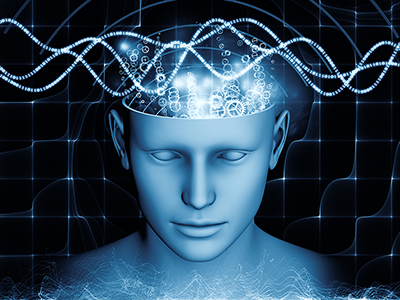Responsibilities of the Unconscious Mind

Our unconscious mind makes the changes that we make. We can communicate with our conscious mind, although we will also be talking to our unconscious mind about the changes that we have to make. Our unconscious mind is the part of our mind that we are not conscious of right NOW!
Until you read this you are not conscious that your eyes are reading this, the blinking of your eyes, or even the beating of your heart and the rhythm of your breathing. You are not conscious of the chair against your body or the ground below your feet; the noises around you or any smells that you are now aware.
Our Unconscious Mind is Responsible for the Changes We Make
- Our unconscious mind operates our body... (respiratory, circulatory, digestive and endocrine systems) to ensure homeostasis (perfect health). Our body’s primary function is the preservation of life.
- Our unconscious mind stores memories in relation to time and not in relation to time... providing a connection to our memories.
- Our emotions live in the unconscious mind. Those not connected to their emotions may not have as good a connection with their unconscious mind as those connected to their emotions.
- Our unconscious mind organises our memories, and uses the timeline to organise our memories.
- Our unconscious mind represses memories that have unresolved negative emotions and also presents these repressed memories for resolution to release negative emotions. Our unconscious mind may keep repressed emotions repressed for our protection.
- Our unconscious mind is moral (the morality we have been taught and accepted).
- Our unconscious mind serves us, therefore requires clear instructions. Consistency of positive thoughts to the unconscious mind creates positive change.
- Our unconscious mind is responsible for the perceptions of our conscious mind.
- Our unconscious mind is in charge of the generation, storage, distribution and transmission of energy throughout the body.
- Our unconscious mind is responsible for our instincts (fight or flight response), and generates habits (good and bad). Repetition is required for the habit to be installed into the unconscious mind. See Stress Less
- Our unconscious mind is insatiable in its quest for more.
- Our unconscious mind operates as a whole integrated unit, meaning all procedures should increase wholeness.
- Our unconscious mind is symbolic (it uses and responds to symbols). Often recalling a different account of what actually happened; a symbolic representation rather than an actual representation...what we remember is simply what we remember!
- Our unconscious mind takes everything ‘personally’. What is expressed is impressed...how and what we think of others not only affects their ability to change, it also affects our ability to change. Our belief system determines how others change and how we change!
- Our unconscious mind prefers the path of least resistance; doing as little as possible to produce the results we have asked it for. To remedy this we have to be specific and set goals.
- Our unconscious mind does not process negatives.
Refer to Chapters 'Stress Less' & 'Habits' from Living, available to download.
When we are asked,
"Don’t think of the BIG White Rabbit"
“Don’t think of the BIG White Rabbit”;
That is exactly what we think of. Positive reinforcement works well, instructing the unconscious mind what to do; rather than what not to do. Reverse psychology also works; for example...
"I don’t want you to think that it will be really, really easy to make this change"
“I don’t want you to think that it will be really, really easy to make this change”.
Because our unconscious mind does not process negatives, it hears,
"It will be really, really easy to make this change"
“It will be really, really easy to make this change”.
Consistent positive reinforcement instils change and utilising negative beliefs also shifts us to more positive beliefs.
"Aspirations are the Seeds of Tomorrow's Beauty"
We all have different faces, different strengths and abilities; we have unique goals and different ways of learning and communicating.
